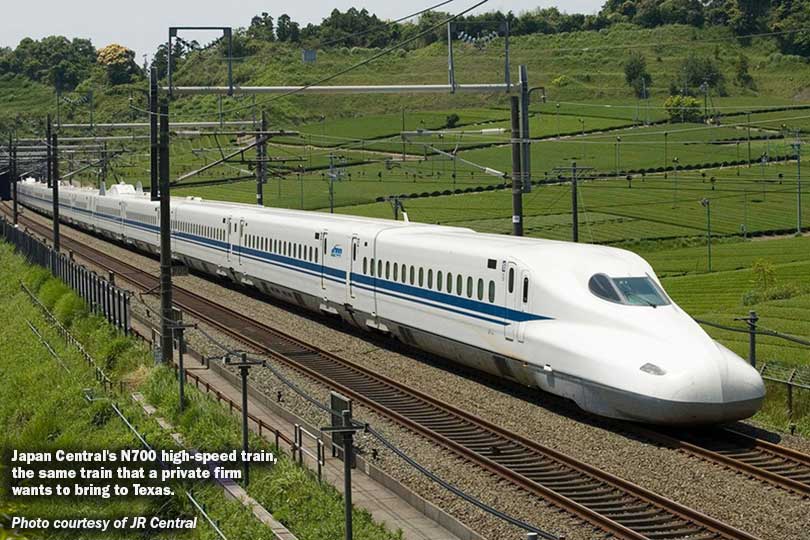By Julie Tomascik
Editor
Will a high-speed collision head straight for 10 counties in rural Texas?
The controversial 240-mile bullet train, proposed by Texas Central Partners, would connect Dallas and Houston, getting passengers between the two cities in an estimated 90 minutes.
But at what cost? The private property of many rural landowners.
The company’s claim that it has the power to use eminent domain to take the land it needs has spurred state legislation, which aims to stop the project in its tracks.
More than 20 bills were recently filed. Texas Farm Bureau (TFB) supports nearly all of them as they relate to organizational eminent domain policy.
“The total package of bills approaches the issue by preventing the construction of the project and protecting landowners in the instance the rail is built,” Mike Pacheco, TFB associate legislative director, said.
TFB’s policy, developed by farmers and ranchers, opposes concepts like the High-Speed Rail and the acquisition of additional farm and ranch lands through the state powers of eminent domain for construction of such concepts.
“There is great concern among property owners of how a project like this would affect their land and communities,” Pacheco said.
Lack of exits to small towns, tax burdens and lack of access between bisected parcels, as well as the creation of new rights-of-way that could negatively impact wildlife, are just some of the hardships the 10 counties would face.
New legislation filed also addresses the process if the project is determined to have eminent domain authority.
“If the rail is determined to have eminent domain authority, then we have conditions in our policy that we want met,” Pacheco said. “Many of those conditions are outlined in the bills that have been filed, as well as our eminent domain package.”
HB 2160 by Rep. John Wray (R-Waxahachie) addresses compensation for damages to lands not necessarily occupied by the project, but are still affected.
“This is often an issue in eminent domain scenarios, and it is legislation Texas Farm Bureau has been working toward,” he said.
Other legislation seeks to mitigate the negative impacts on the land if the rail fails.
HB 2179 by Rep. Byron Cook (R-Corsicana) and SB 979 by Sen. Charles Schwertner (R-Georgetown) call for the landowner to have the right to buy back the land in question if it is no longer needed.
Bills have been filed that would require companies to put up a bond to restore a land to its original state if the project fails.
“Our eminent domain package gets at many of these issues highlighted in the high-speed rail bills,” Pacheco said. “We still have members who are dealing with pipelines, roads and transmission lines. That’s why we’re also looking at these bills from an eminent domain perspective, because we want to be able to address the issues in all of these projects—not only in one specific project.”
Check the weekly Austin Newsletter for updates on high-speed rail legislation at https://texasfarmbureau.org/advocacy/austin-newsletter/.

